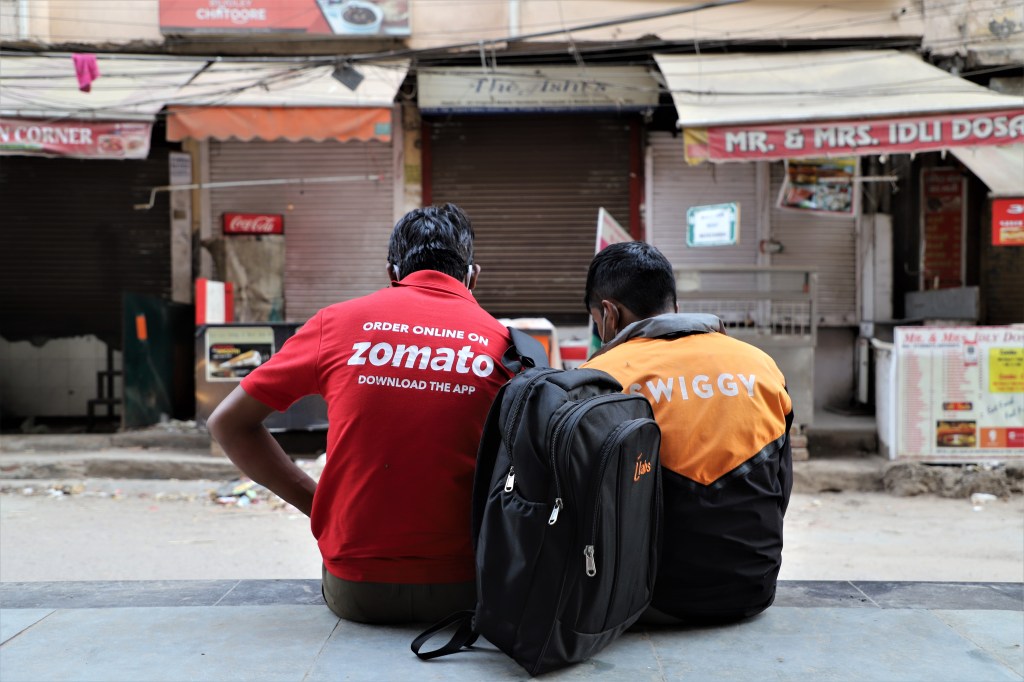India’s Gig Workers Gain Legal Recognition, Yet Social Security Remains Uncertain
India has recently granted legal recognition to millions of gig and platform workers through the implementation of the Code on Social Security, one of four new labor laws that came into effect on November 21, 2025. This development marks a significant milestone for individuals engaged in delivery services, ride-hailing, and e-commerce. However, despite this formal acknowledgment, access to comprehensive social security benefits for these workers remains ambiguous.
The Gig Economy’s Expansion in India
India’s gig economy is among the largest and fastest-growing globally, with over 12 million individuals participating in various on-demand services. These roles include food delivery, ride-hailing, and e-commerce logistics. The sector has become a vital employment source, particularly for young and migrant workers who often face challenges entering the formal job market. As companies continue to scale operations in logistics, retail, and hyperlocal delivery, the gig workforce is projected to expand further.
Legal Recognition Under the Code on Social Security
The Code on Social Security provides a statutory definition for gig and platform workers, a first in India’s legislative history. It mandates that aggregators—companies operating in sectors like food delivery and ride-hailing—contribute between 1% and 2% of their annual revenue to a government-managed social security fund. This contribution is capped at 5% of the total payments made to gig workers. The intent is to extend benefits such as health insurance, provident funds, and other welfare schemes to this workforce.
Uncertainties Surrounding Social Security Implementation
Despite the legal framework’s establishment, several critical details remain unresolved:
– Benefit Specifications: The exact nature and extent of the benefits to be provided are yet to be clearly defined.
– Access Mechanisms: The processes through which workers can access these benefits have not been established.
– Contribution Tracking: With many gig workers engaged across multiple platforms, monitoring and allocating contributions accurately poses a significant challenge.
– Implementation Timeline: There is no clear timeline indicating when these benefits will become available to workers.
These ambiguities raise concerns that meaningful protections may take years to materialize, leaving workers in a state of uncertainty.
Industry Response and Worker Advocacy
Major companies such as Amazon, Flipkart, Swiggy, Blinkit, Zepto, Uber, Ola, and Rapido heavily rely on gig workers to sustain their operations in India. While these companies have acknowledged the new legal framework, many are still assessing their obligations and the potential financial impact of the mandated contributions.
Worker unions and advocacy groups have expressed cautious optimism regarding the legal recognition but emphasize the need for swift and transparent implementation of social security benefits. They argue that without concrete measures, the legal status change offers little practical improvement to workers’ livelihoods.
Comparative Perspectives
The challenges faced by India’s gig workers are not unique. Globally, the gig economy has prompted debates over worker classification and rights. For instance, in France, Deliveroo was fined for misclassifying riders as independent contractors, highlighting the legal complexities surrounding gig work. Similarly, in New Zealand, a court ruled that Uber drivers should be treated as employees, granting them access to employment benefits. These international cases underscore the importance of clear legal definitions and the enforcement of worker rights in the gig economy.
The Path Forward
For India’s gig workers to fully benefit from their new legal status, several steps are essential:
1. Clarification of Benefits: The government must define the specific social security benefits available to gig workers and establish clear eligibility criteria.
2. Efficient Access Mechanisms: Developing streamlined processes for workers to access benefits is crucial to ensure timely support.
3. Robust Monitoring Systems: Implementing systems to accurately track contributions from multiple platforms will help in the fair distribution of benefits.
4. Stakeholder Collaboration: Engaging with gig workers, platform companies, and advocacy groups can facilitate the creation of policies that address the needs of all parties involved.
While the legal recognition of gig workers in India is a commendable step, the realization of tangible social security benefits requires concerted efforts from the government, industry stakeholders, and worker representatives. Only through collaborative action can the promise of protection and support for gig workers be fulfilled.



